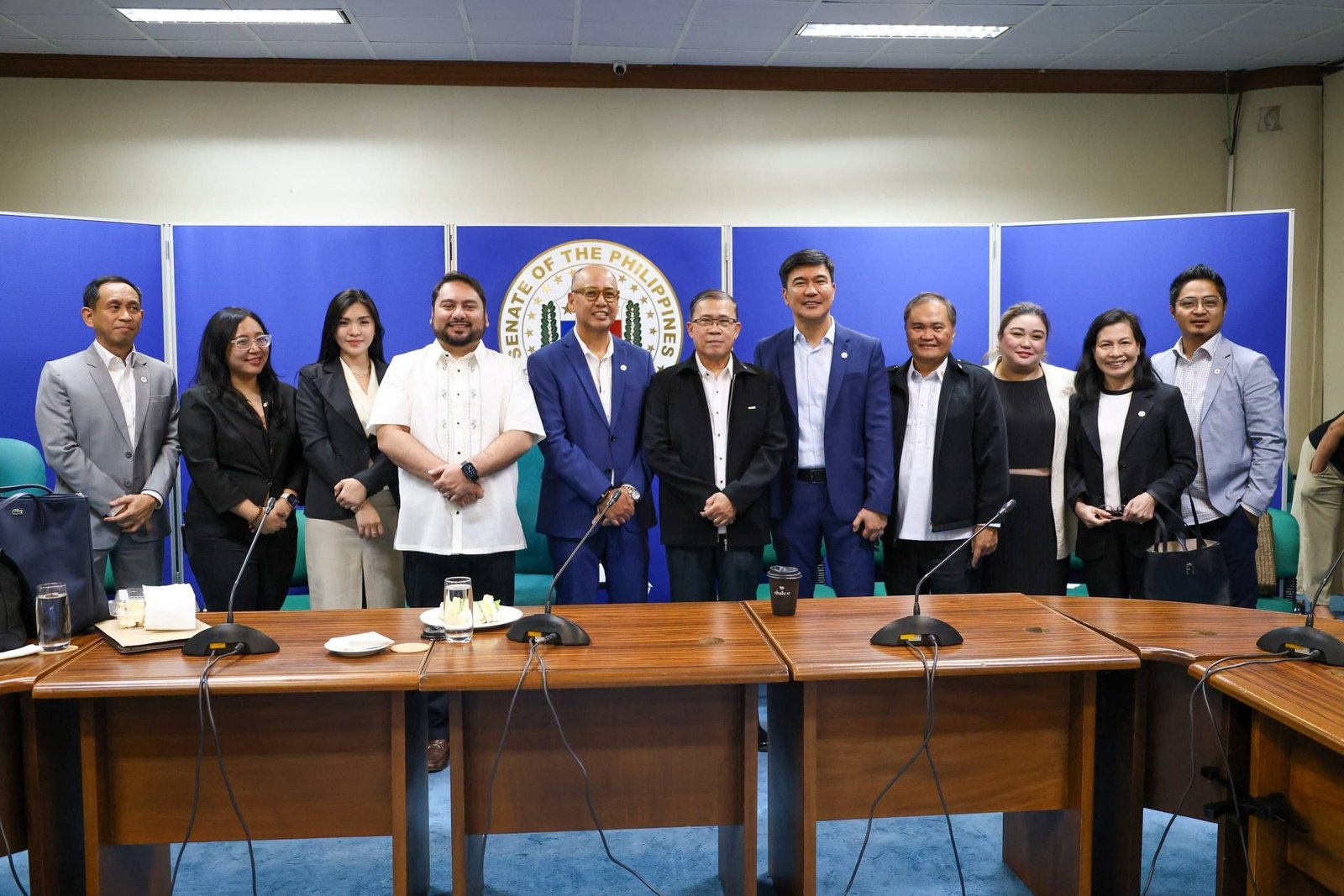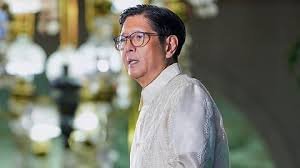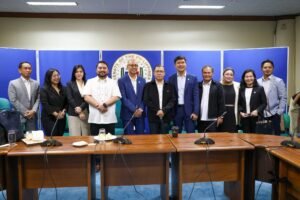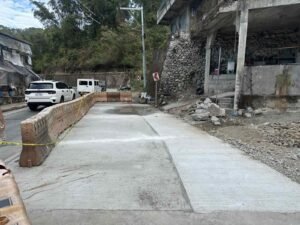𝗞𝘂𝘄𝗲𝗻𝘁𝗼𝗻𝗴 𝗣𝗲𝘆𝘂𝗽𝘀 𝗔𝘁𝗯𝗽. 𝗯𝘆 𝗔𝘁𝘁𝘆. 𝗗𝗲𝗻𝗻𝗶𝘀 𝗚𝗼𝗿𝗲𝗰𝗵𝗼
“No to Charter Change (Cha Cha)” reverberated during the recent two main events in the Diliman campus of the University of the Philippines: the Oblation Run and the UP Fair.
The House of Representatives is attempting to amend the 1987 Constitution primarily on the “prohibitive” economic provisions that limit foreign ownership.
Faculty members of the UP Department of Political Science stressed in a position paper that “reforms can be accomplished through an appropriate mix of legislation and policy interventions, and not simply through constitutional amendments or even institutional overhaul”.
They added: “Infrastructure development is more important in improving the economy than changing the ownership rules. Constitutional amendments on economic provisions are insufficient to ‘attract’ more investors.”
Some of the placards by the masked Oblation runners stated: “Ingatan ang demokrasya, Cha-Cha ibasura”, “Lupa para sa mamamayan, hindi sa dayuhan”, “Pinas para sa Pinoy”.
The Oblation Run is one of the popular traditional activities within UP campuses which begun in 1977 as an annual event of the Alpha Phi Omega (APO) that calls to attention and highlights specific hot issues for the year.
During the Martial Law era, APO sponsored the screening of the film “Hubad na Bayani” directed by Robert Ylagan that portrayed a peasant revolt and the possibility of government overthrow. It was later censored by the Marcos’ media.
The first oblation run was a promotional gimmick for a film Marcos deemed politically dangerous.
In September 1977, two APO brothers streaked in front of Palma Hall as naked heroes of a defiant university under Martial Law.
Since then UP denizens eagerly await the Oblation run every second week of December, which was moved to February during the recent years.
Originally held in September, the UP Fair at the Sunken Garden started in the early 1980s as an avenue for dissent against the Martial Law era of then dictator Ferdinand Marcos, Sr.
The event was more of a series of cultural performances with political undertones organized by the University Student Council (USC) after it was re-established in 1981.
Lean Alejandro became the USC chairman in 1983 and later a key figure in the national anti-dictatorship movement who is known for his statement: “The struggle for freedom is the next best thing to actually being free”.
It was in 1984, or 40 years ago, when the UP Fair was institutionalized as a fund-raising activity by student organizations led for the USC and considered the biggest student-initiated activity in UP Diliman.
What started as a simple “perya-like” event, the UP Fair was moved to February and has evolved into a full-blown celebration of Philippine art, music, and culture.
The UP Fair is more than just a showcase of talent. It became a platform for change – a venue to campaign for issues that UP students have been fighting for over the years.
Musically-talented students see the campus as a large performing hall full of opportunities and like-minded individuals.
The UP Fair has promoted several bands and talents, homegrown and non-UP alike, which include The Jerks, The Dawn, Buklod, Yano, Sinaglahi, Patatag and the Eraserheads being the most famous among them.
In the late 1980s and early 1990s, when I was still studying in UP Diliman, the themes evolved around the US bases and the Socialized Tuition and Financial Assistance Program (STFAP).
This year’s UP Fair was held from February 12 to 17, 2024 with the theme “Paalabin ang Tinig” that aims to give awareness on specific social issues each day: human rights and national sovereignty (Monday: Hiwaga); education (Tuesday: Pop Rising); urban poor (Wednesday: Kalye Tunes); women and gender (Thursday: Quests); peasants (Friday: Elements); national minorities (Saturday: Rev).
Performers include Sandwich, Morisette, Yeng Constantino, The Itchyworms, Lola Amour, Moira Dela Torre, Gloc-9, Imago, The Neocolours, Brownman Revival, Sponge Cola, and Juan Karlos.
The vocalist of Sandwich is Raymund Marasigan of Eraserheads.
The Eraserheads made their first performance at the UP Fair on February 1991 which came two years after Ely Buendia, Buddy Zabala, Marcus Adoro and Marasigan formed the band in 1989.
Buddy and Raymund were my roommates for two years (1989 to 1991) at the Molave dorm during my last years in college.
Political expressions always had their place in university events like the Oblation Run and UP Fair as students often use their creative talents to send message on social issues.
The campus molded us to fight for the causes we believe in; trained us for the skills we need to communicate ideas and rally others to effect changes in society.
(𝑃𝑒𝑦𝑢𝑝𝑠 𝑖𝑠 𝑡ℎ𝑒 𝑚𝑜𝑛𝑖𝑘𝑒𝑟 𝑜𝑓 𝑡ℎ𝑒 𝑈𝑛𝑖𝑣𝑒𝑟𝑠𝑖𝑡𝑦 𝑜𝑓 𝑡ℎ𝑒 𝑃ℎ𝑖𝑙𝑖𝑝𝑝𝑖𝑛𝑒𝑠. 𝐴𝑡𝑡𝑦. 𝐷𝑒𝑛𝑛𝑖𝑠 𝑅. 𝐺𝑜𝑟𝑒𝑐ℎ𝑜 ℎ𝑒𝑎𝑑𝑠 𝑡ℎ𝑒 𝑆𝑒𝑎𝑓𝑎𝑟𝑒𝑟𝑠’ 𝐷𝑖𝑣𝑖𝑠𝑖𝑜𝑛 𝑜𝑓 𝑡ℎ𝑒 𝑆𝑎𝑝𝑎𝑙𝑜 𝑉𝑒𝑙𝑒𝑧 𝐵𝑢𝑛𝑑𝑎𝑛𝑔 𝐵𝑢𝑙𝑖𝑙𝑎𝑛 𝐿𝑎𝑤 𝑂𝑓𝑓𝑖𝑐𝑒𝑠. 𝐹𝑜𝑟 𝑐𝑜𝑚𝑚𝑒𝑛𝑡𝑠, 𝑒-𝑚𝑎𝑖𝑙 𝑖𝑛𝑓𝑜@𝑠𝑎𝑝𝑎𝑙𝑜𝑣𝑒𝑙𝑒𝑧.𝑐𝑜𝑚, 𝑜𝑟 𝑐𝑎𝑙𝑙 09175025808 𝑜𝑟 09088665786.)













